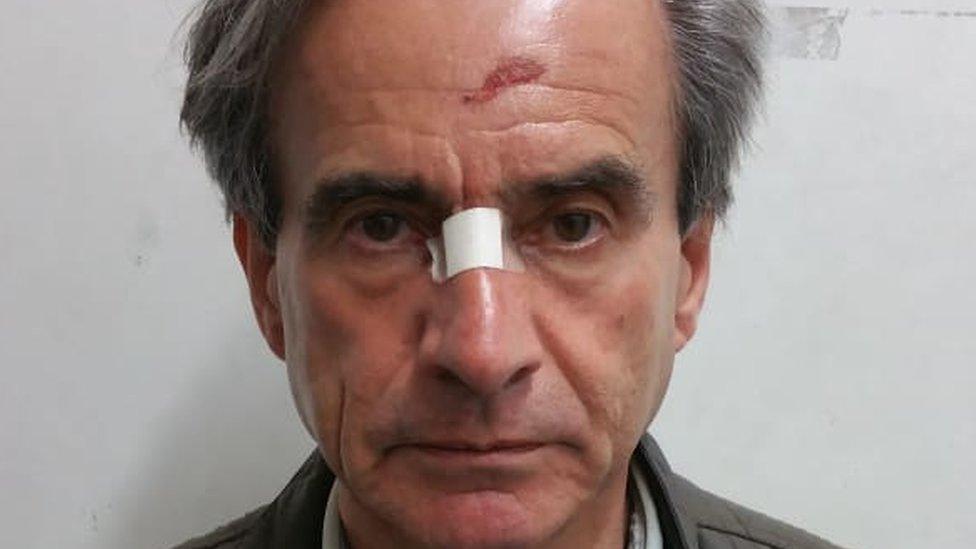Gerald Banyard: Hunt for man who tried to frame man as terrorist
- Published

Gerald Banyard failed to attend court
A man who tried to frame his landlord's partner as a terrorist as revenge in a housing dispute is wanted by police.
Gerald Banyard, of Whalley in Lancashire, sent two handwritten notes to police after the Westminster Bridge attack by Khalid Masood in March 2017.
He falsely claimed another person had been involved in the atrocity.
He was convicted of perverting the court of justice at Southwark Crown Court on Tuesday but failed to attend the hearing.
A warrant for his arrest was issued by the judge.
Commander Richard Smith, head of the Metropolitan Police Counter Terrorism Command, said: "In the immediate aftermath of the Westminster attack, our main priority was to establish whether the attacker might have plotted with others, and whether there was any outstanding threat.
"This involved scores of officers working around the clock and pursuing various lines of inquiry in order to keep the public safe.
"Banyard looked to exploit an extremely tragic and serious situation to try and settle what was a private dispute with his landlord.
"His actions meant that counter-terrorism resources were diverted to investigate what turned out to be a completely fabricated story which implicated an innocent man.
"His actions were disgraceful and completely reckless."
Masood ploughed a car into pedestrians on Westminster Bridge before smashing into railings outside the Palace of Westminster and killing unarmed police officer Keith Palmer.
Eight days after the attack, Banyard sent a package to Brighton police station claiming to be from an American tourist called Kevin who had found a suspicious note in his hotel room.
That note was addressed to "Khalid" and signed off with a name and phone number.
A second letter was sent to Scotland Yard on 1 April 2017 from Leeds and again claimed that a man from Eastbourne had been communicating with Masood, giving his phone number.
Counter-terrorism detectives questioned the accused man and confirmed he was completely innocent.
He identified Banyard as a possible suspect because he was involved in a tenant-landlord dispute with his partner.
A handwriting expert confirmed that Banyard had written the notes sent to police.

Why not follow BBC North West on Facebook, external, Twitter, external and Instagram, external? You can also send story ideas to northwest.newsonline@bbc.co.uk, external